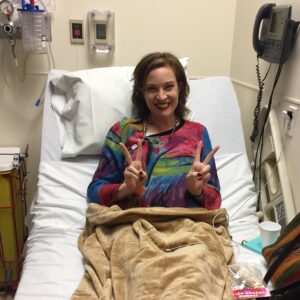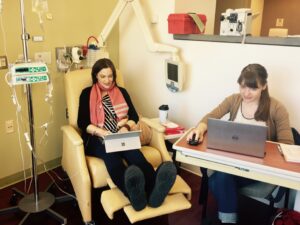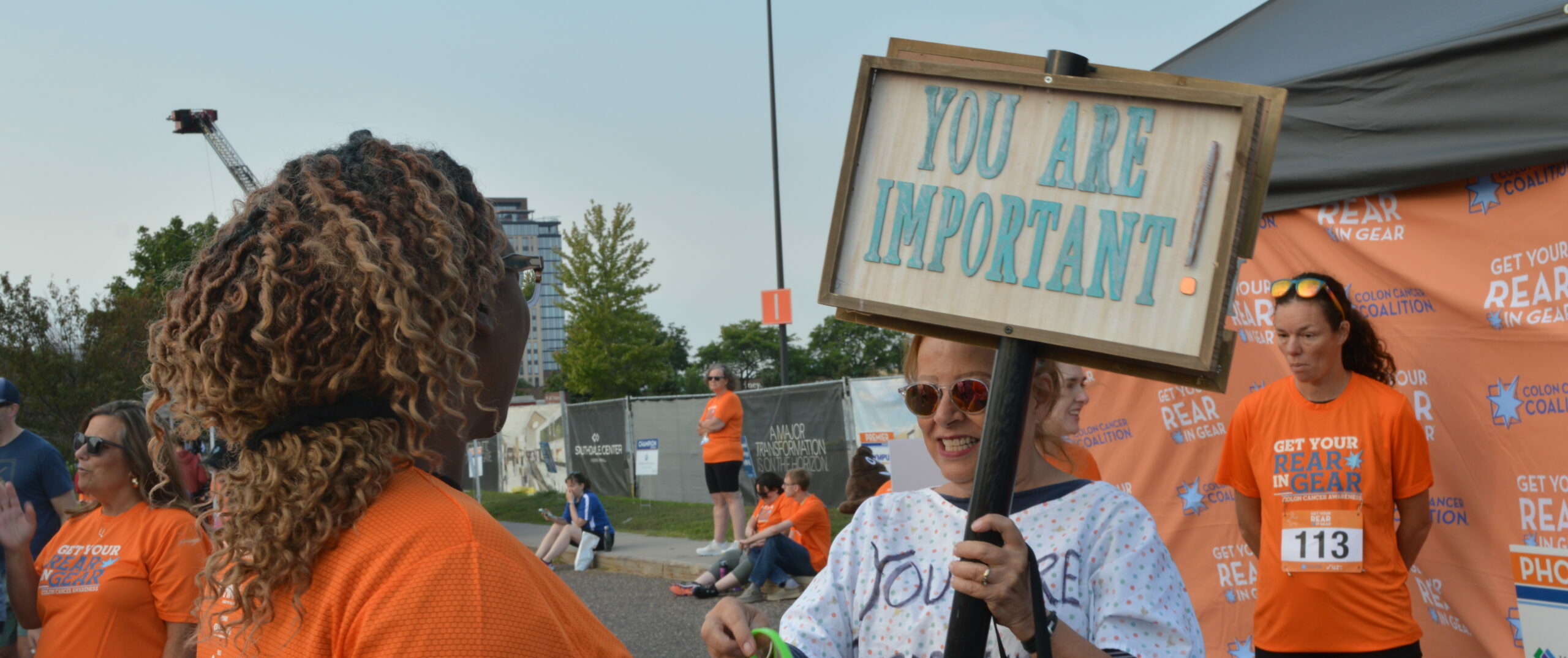
J essica Catlin is not someone who shies away from the truth. When she was diagnosed with stage IIIb colorectal cancer in 2016 at the age of 39, she started keeping a blog which she later self- published as a book. In the book, she details the good, the bad, and the ugly of her experience. For Jessica, there were plenty of all three along the way. She uses the truth to advocate for herself and others because as Jessica puts it, “taboos kill people.”
essica Catlin is not someone who shies away from the truth. When she was diagnosed with stage IIIb colorectal cancer in 2016 at the age of 39, she started keeping a blog which she later self- published as a book. In the book, she details the good, the bad, and the ugly of her experience. For Jessica, there were plenty of all three along the way. She uses the truth to advocate for herself and others because as Jessica puts it, “taboos kill people.”
Jessica’s cancer treatment included radiation, chemotherapy, a temporary and then reversed ostomy, and surgery to rid the cancer in her rectum.
Now, she says, “I don’t actively feel like a cancer patient, and it has taken five years to get to that point.” Despite the fact that she’s been free from cancer for years, Jessica’s life has been changed in ways she could have never imagined. For one, undergoing radiation and chemotherapy threw her into early menopause at the age of 40. The change in her hormones and physical changes to her body from intensive surgery and radiation caused sexual dysfunction, an area of her health which is still incredibly compromised.
Jessica also had challenges withdrawing from the fentanyl pain patches given to her during radiation. She had already built up a wealth of coping skills from previous experiences in therapy, which proved incredibly useful in facing the difficulty of her diagnosis. Her advice to cancer patients is to focus on their mental health and get the support they need from therapy, support systems, and medication. “The anxiety of it all can really get to you, and I’ve seen people just melt under the pressure.”
The last five years have been a time of recalibrating and reprioritizing for Jessica. She’s had to develop a keen sensitivity to her digestion and anticipate her needs in new ways. “When you don’t have a rectum, even the simplest things can become very challenging.” For everyday events like family meals or work dinners, Jessica has to prepare with adequate time and supplies to manage her adapted digestive process. 
Being able to speak with other patients around the same age was comforting to Jessica after her initial diagnosis, especially those who had similar types of cancer. One of the hardest parts of cancer diagnosis is the uncertainty; talking to others about their experiences can help in knowing what to ask doctors, and what to expect.
This is one of the reasons Jessica now volunteers with Patient Empowerment Network as their Colon Cancer Empowerment Lead. As she has gotten to know more and more people with cancer through these networks, Jessica has seen many of them get extremely sick, and some – like her friend Anne’s husband Brent – have died from their diagnosis. In some cases, early testing and advocacy could potentially have changed the outlook. “Just get the damn test,” Jessica says, “Trust me, cancer treatment is so much worse than the embarrassment and inconvenience of a colonoscopy.”
Jessica recently bought her first house in Chicago with her partner, Conrad. She works at a community mental health center, where she was recently dubbed “Most Kick Butt” team member by her boss. To learn more about Jessica’s story, you can find her book here.
RETURN TO FACES OF BLUE SIGNS & SYMPTOMS WHAT IS COLON CANCER?

